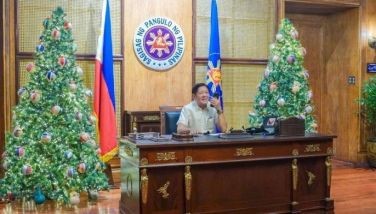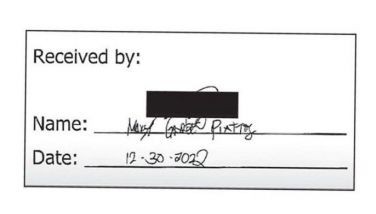Gov't to bail out Quedancor
MANILA, Philippines – The national government plans to bail out the Quedan and Rural Credit Guarantee Corp. (Quedancor) using P475 million of taxpayers’ money before phasing out the agency that has been losing money for years.
Finance Secretary Margarito Teves said the money would be used to pay off the past due loans of Quedancor to various private creditors.
“What we have in mind right now is to phase out or deactivate Quedancor. In the process, there are some obligations to creditors that we need to address. It is a bailout in the sense that we will address the obligations to the creditors,” Teves told a budget hearing yesterday conducted by the House of Representatives sub-committee on appropriations.
According to Teves, Quedancor is seeking P470 million for its operations in 2009, plus a “rescue package” of P3.5 billion so it can meet its financial obligations.
Finance Undersecretary Jeremias Paul Jr. explained that the P475 million, which will be in the form of equity infusion, will help Quedancor pay its past due obligations to various creditor banks.
“We need to pay off the creditors. We need to negotiate with our creditors. We don’t have the legal basis to pay off the obligations so it will be in the form of equity infusion,” Paul said.
Paul said Quedancor, which is mandated to accelerate the flow of credit resources to the countryside, has not been performing its functions and has been losing money because of mismanagement.
In 2007, Quedancor had a net loss of P286 million and in 2006, a net loss of P23 million.
“So it’s better to invest the money in a net agency that will have the same functions as Quedancor,” Paul said.
Quedancor officials and employees, on the other hand, are opposed to the proposed deactivation. Instead, the agency wants a P3.5-billion bailout package, which officials said would make Quedancor sustainable.
“We are saddened by the emerging option that we will be deactivated. If there is indeed a decision to deactivate Quedancor, there must be a substitute agency,” said Quedancor officer-in-charge Freddie Espiritu.
The employees appealed to President Arroyo to retain the agency.
“Most of us, after serving the government for more than two decades, are faced with the eventuality of unemployment should our beloved corporation collapse,” the 1,200-strong Quedancor Employees Association, Inc. said in a letter to Arroyo.
The government has yet to finalize the phase-out plan of Quedancor, Teves said.
Bayan Muna party-list Rep. Teodoro Casiño said the government should also go after those responsible for the mismanagement of Quedancor such as former officials and employees of the agency.
Congressional support
Pangasinan Rep. Mark Cojuangco, who chairs a House appropriations subcommittee that heard Quedancor’s proposal, said he supports the government’s plan to phase out the corporation.
“We should collapse it. We should not infuse new money in this agency. We should allow it to die a natural death, retire its personnel and pay them retirement benefits,” he said.
Cojuangco said based on estimates, only P80 million to P100 million would be needed for the retirement of Quedancor personnel.
He added that if Congress appropriates only P100 million of the P470 million that the state corporation is seeking, it would be saving P370 million in taxpayer’s money, aside from the P3.5-billion bailout package that it is proposing.
Espiritu told Cojuangco that his agency incurred its huge indebtedness during the time of Nelson Buenaflor as president and chief executive officer.
He said the P12-billion loans include the controversial P5 billion obtained in 2004 from Land Bank and Equitable PCI and which has been recently exposed in the Senate as having been used for a swine-lending program.
Espiritu said Quedancor pays about P1 billion a year in interest alone for its loans.
Fictitious beneficiaries
According to a Commission on Audit report, much of the billions lent under the swine program could not be accounted for as the alleged beneficiaries could not be located or were fictitious.
In places where beneficiaries were found, auditors discovered they were in arrears because their projects failed. In other cases, defaulting borrowers misused their loans.
A team of Land Bank and Quedancor officials, plus a private arranger, packaged the P5-billion loan from Land Bank and Equitable PCI (now Banco de Oro).
The team included Jose Nograles, brother of Speaker Prospero Nograles, who was then a Land Bank vice president and who is now president of another state firm, the Philippine Deposit Insurance Corp.
Opposition Sen. Jamby Madrigal has claimed that the Speaker’s brother benefited from the P100 million in arranger’s fees that Quedancor paid out of its huge loan. Jose Nograles, however, denied the accusation. – Jess Diaz
- Latest
- Trending





























